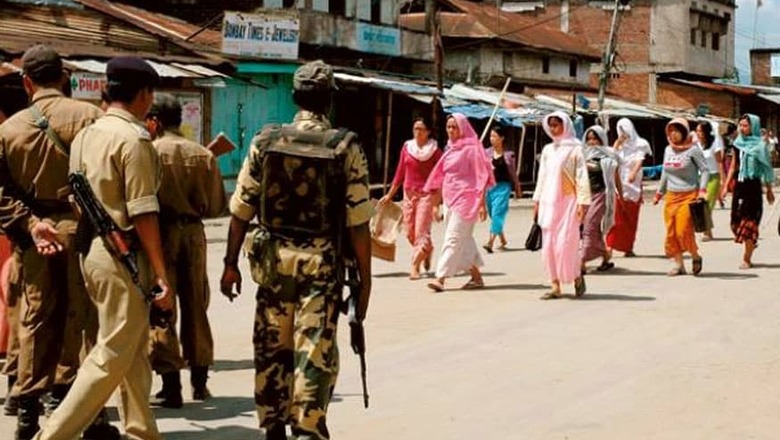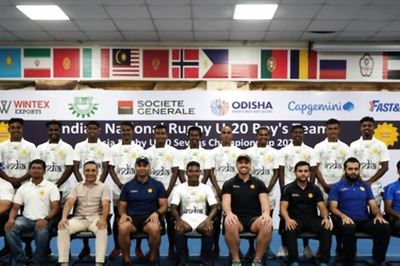
views
The Armed Forces (Special Powers) Act (AFSPA) has become a bad word among human rights activists and civil society groups. The Act has been described as an abomination—a draconian law that encourages the Army to carry out human rights violations with impunity.
Critics of the AFSPA point towards two sections of the Act. The first is Section 4 that empowers officers (both commissioned and non-commissioned) to “fire upon or otherwise use force, even to the causing of death” not only in cases of self-defence but against any person contravening laws or orders "prohibiting the assembly of five or more persons."
Section 4 is criticized for providing sanction to soldiers for excessive use of force that is in contravention to international norms. This section is also said to be in violation of Article 21 of the Indian Constitution that states that “no person shall be deprived of his life or personal liberty except according to procedure established by law”.
The second is Section 6 of the Act, which prohibits prosecution or other legal proceedings without the sanction of the central government. It is argued that this provision gives blanket immunity to soldiers. Armed with this immunity, the Army allegedly indulges in human rights violations.
In this backdrop, when the Supreme Court, in its judgment of July 2016, decided that there were grounds to investigate 1,528 case of human rights violations in Manipur, there was elation among human rights groups. This soon turned into indignation when more than 700 officers and soldiers moved the Supreme Court on AFSPA. There were accusations that the soldiers are attempting to subvert the legal process and prevent criminal violations from being investigated.
However, it would be too simplistic to ignore the concerns of soldiers fighting terrorism in Kashmir and the northeast. While they remain nameless and faceless, they are as human as all of us. The Supreme Court judgment of July 2016 has raised a number of issues that could potentially drag thousands of soldiers into legal cases.
There are three troubling observations of the Supreme Court. The first relates to ‘excessive use of force’. The court observed, “In the enquiry, it might turn out that the victim was in fact an enemy and an unprovoked aggressor and was killed in an exchange of fire. But the question for enquiry would still remain whether excessive or retaliatory force was used to kill that enemy.” The court concluded that “use of excessive force or retaliatory force by the Manipur Police or the armed forces of the Union is not permissible.” How excessive force is to be judged in the safe environs of a courtroom, years after the incident, is a huge question.
The court made it clear that “even if the armed forces decide to take action and inquire into the allegations at their own level, it would not preclude any other inquiry or investigation into the allegations made.”
The court also ruled that “in the event of an offence having been committed by any person…through the use of excessive force or retaliatory force, resulting in the death of any person, the proceedings in respect thereof can be instituted in a criminal court subject to the appropriate procedure being followed.”
These observations of the Supreme Court completely dilute any protection offered under the AFSPA. If investigations into allegations are to be done by the CBI, the use of excessive force becomes a major factor for prosecution, and soldiers can be dragged to criminal courts, the AFSPA has little relevance.
An added worry is that no Army person can be tried under the Army Act after three years of his retirement. Today, numerous decades-old cases are being opened, and more and more retired officers and men are being called for investigations. All such persons will perforce have to be tried in criminal courts.
We must, therefore, ponder whether the AFSPA is currently serving any useful purpose. In areas where AFSPA is in force, the population is completely against it. Wilhelm Joseph Schelling observed, “The more people feel there is injustice, the more it becomes part of their psyche.” As long as people feel AFSPA is an unjust law, it will continue to invite criticism, irrespective of any logic.
On the other hand, the fact that hundreds of officers and men have moved the Supreme Court shows that they are not fully confident that the AFSPA, after its battering by the SC, can actually protect them from legal harassment. Their apprehensions also have to be squarely addressed.
In my view, the current imbroglio will not be resolved by individuals appealing to courts that are bound to narrowly interpret the law, particularly in allegations of human rights violations. The answer may lie in the advice of Voltaire, the French philosopher, “If you want good laws, burn those you have and make new ones.”
It is perhaps time for the government to look at a new legislation to replace the AFSPA. A legislation that strengthens both respect for human rights, as well as protection to our soldiers who put their lives on the line in defence of the country. To some, this may appear to be a contradiction, but we should remember that the military ethic is itself based on a strong moral foundation.
(The author is former Northern Commander, Indian Army, under whose leadership India carried out surgical strikes against Pakistan in 2016. Views are personal.)


















Comments
0 comment